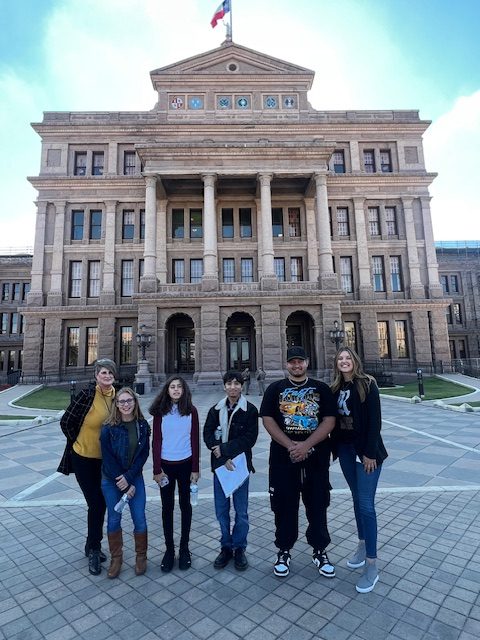A bill proposed by Representative Brad Buckley aims to give schools the ability to provide school vouchers, which would give families $8,000 a year to pay for a student’s private school tuition.
On Nov. 14, senior Isaac Pedroza spoke at the Texas Capitol against the use of school vouchers. The vouchers seek to take money from public school funds, which are mainly used to support special education services, an already underfunded program.
Private schools are not subject to regulation by the Individuals with Disabilities Education Act, which requires public schools to provide key services to students with disabilities. If the vouchers are approved, students in special education would have a harder time getting accepted into private schools and would decrease funds for therapies, which Texas public schools are already equipped to provide.
“I want to be someone ordinary, but I’m not ordinary,” Pedroza said. “I wanted to speak up about having an intellectual disability and about having my own rights. I wanted to have my voice heard. I was so angry that I might not have an opportunity to have that in my life.”
In his speech, Pedroza highlighted the opportunities that public education has provided for him.
“They have not only inspired me to believe in my own abilities but have also encouraged my independence,” he said. “Showing me that having a disability does not limit my potential.”
District Representatives reached out to SPED and ICAP teacher Lyndsay Shepherd asking if Pedroza would be willing to speak at the press conference at the Austin Capital.
“He just has such a positive outlook and attitude,” Shepherd said. “And I think that the way that he presents himself, he speaks so clearly. He’s also not afraid to talk about his disability. And he’s very confident in that and likes knowing how to advocate for himself. And that was something that they thought was such a light and so they thought that his voice would be very well heard and received.”
Those in favor of the vouchers argue that the vouchers will allow for students to attend specialized private schools if their needs are not being met in public school. However, disability rights advocates have raised concerns about private schools discriminating against disabled applicants. The bill proposes that no more than 20% of the spots will be reserved for students with disabilities, which places a cap on how many disabled students will be admitted, instead of prioritizing them.
“I need to speak up and advocate for myself and my disability because I want rights for my life,” Pedroza said. “I want rights to be a person with a disability because having a disability makes me no different than any other person in the world.”


